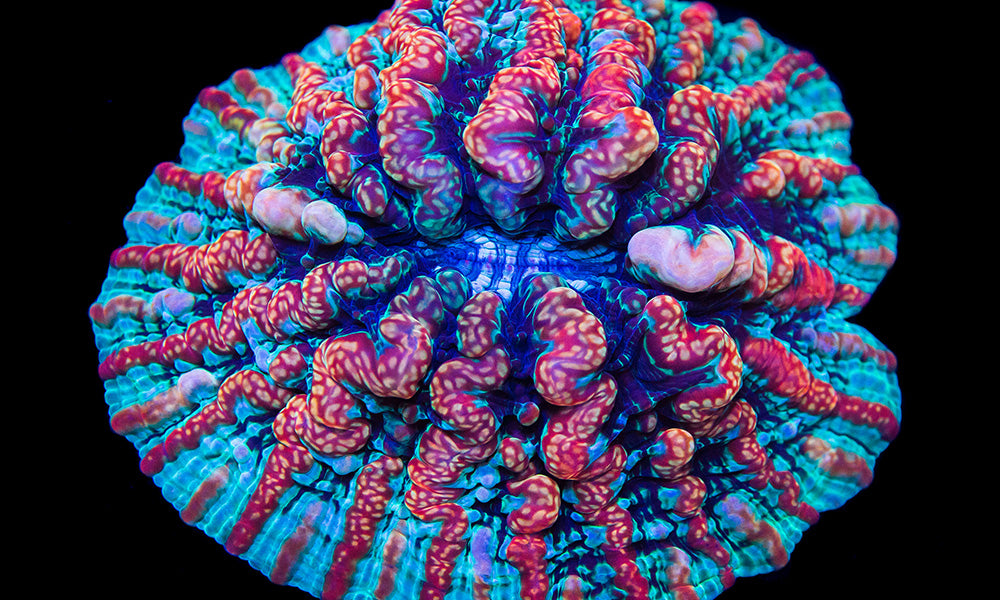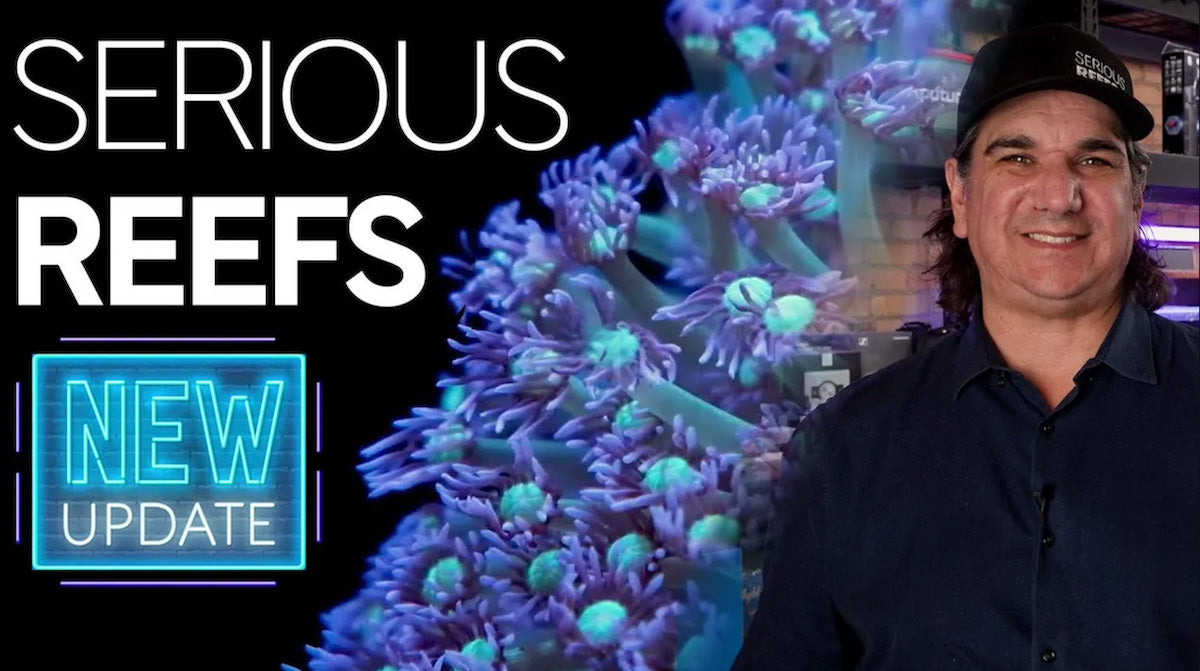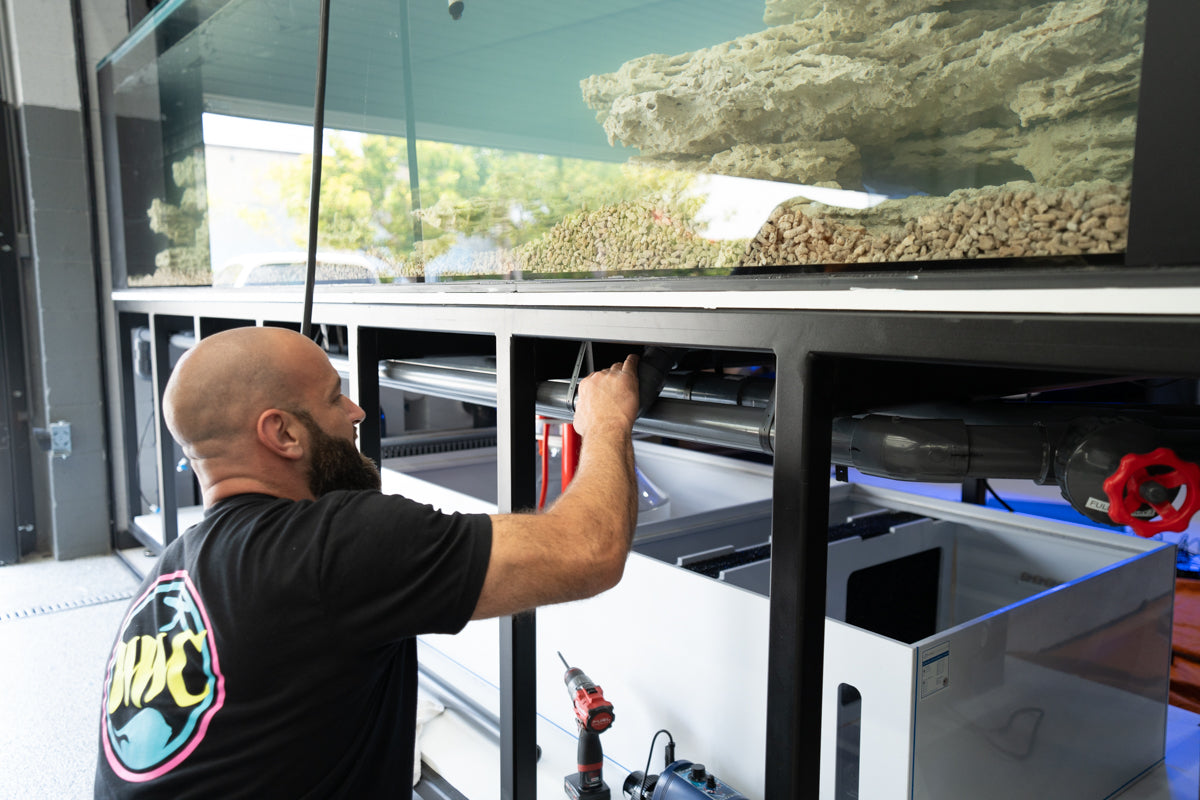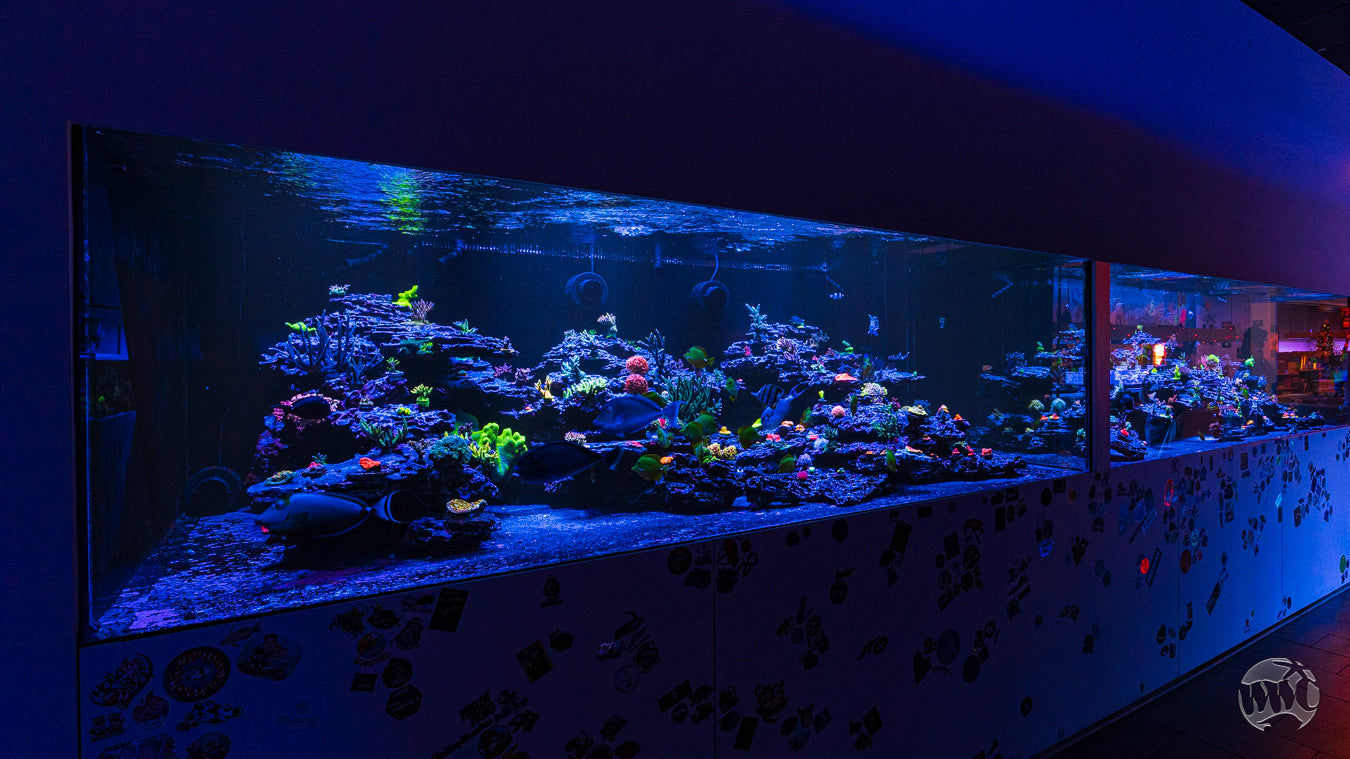There are thousands of different coral species on the globe, and a good portion of them fall under the LPS category. Large polyp stony corals, or LPS corals, have hard exoskeletons with large polyps designed to help collect nutrients from the water around them. As such, they come in a diverse range of shapes as well as a vivid plethora of colors for you to choose from when designing your home aquarium. So, if you’re going to make the right selection, it’s important that you first have an idea of what some of the different species of large polyp stony coral are.
Blastomussa
Resembling mushroom anemones, blastomussa corals are native to Australian reefs. They grow in fused tube-like bunches and are available in several colors depending on their environment. Blastomussas require moderate lighting and low water flow, making them a very easy coral for beginners to care for.
Cyphastrea
Cyphastrea, otherwise known as candy cane coral, are a collection of large striped polyps that are easily recognized among aquarium enthusiasts. One of their most common color schemes includes brownish exteriors with lighter stripes and a neon green center. They also only need low to moderate amounts of lighting and water flow, and they’re very compatible with corals from the Euphyllia species.
Goniopora
Though still considered an LPS coral, goniopora is more delicate in appearance than many of its counterparts. With long stalks and polyps that seem to branch out in different directions, it’s certainly earned its nickname as the flowerpot coral. Gonioporas can range from tan to green, purple, or red in color and require moderate water conditions.
Favia
Favia corals are also a popular species of large polyp stony coral for their rock-like structures and wide array of hues. Though they’re best known for coming in vivid pinks and greens, they can become blue, purple, or red, depending on the environment. Favias are very durable and accept a series of different tank parameters. However, they’ll typically perform better in moderate conditions with lower intensities.
If you’re interested in purchasing some of the above-listed corals or other rare LPS coral species, World Wide Corals is here for you. Not only do we have a healthy range of coral colonies for you to pick from, but we also use a process called aquaculture to grow them ourselves. This ensures that they’re already used to tank conditions and durable enough to withstand the transition into your tank. Feel free to give us a call with any questions related to these or any of our other corals.




